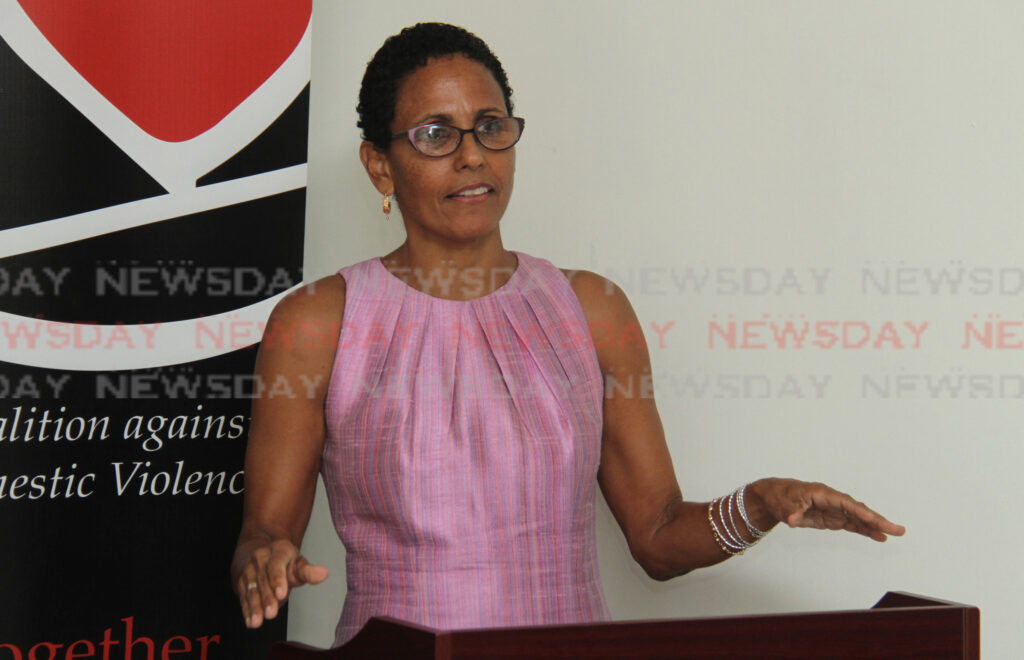JSC told Cabinet must approve draft policy on gender-based violence

WITH domestic violence reported to the police doubling during the pandemic, founder and executive director of Conflict Women Ltd Asiya Mohammed is appealing to the government to implement a draft policy on domestic violence.
Responding to questions posed at a joint select committee on social services and public administration that focused on the state’s response to gender-based violence, Mohammed said education is the key.
She said everyone shared in the responsibility to end gender-based violence and the Draft Strategic Action Plan to end gender-based and sexual violence will provide a holistic response to prevent violence.
This plan, she highlighted, although some of it was implemented, has been before Cabinet since 2016 without full approval.
“Six years have passed and in the six years I think we can all agree that the rate of violence has increased drastically. Those of us in civil society, we have been saying repeatedly for years the same thing: please approve the draft strategy.”
Newsday sent a WhatsApp message to Ayanna Webster-Roy, Minister in the Office of the Prime Minister with responsibility for Gender and Child Affairs, on the repeated calls to approve the draft policy, but received no response up to press time.
Mohammed said the cost of not having a national policy is death.
There is a need to shift the culture, and training children as early as pre-school will do that, she said, as she pleaded with the JSC, chaired by independent senator Paul Richards.
President of the Coalition Against Domestic Violence Roberta Clarke said the action plan is needed to adequately address the issue. She called on all of TT to raise its voices in standing against gender-based violence.
“We have been saying more insistently that the response to domestic violence – apart from the services – we have to work on the prevention and embed it within the school system, starting with early childhood education, and have very clear messages.
"Not just the messages, but the teaching, the pedagogy, the teaching approaches, the teaching curriculum has to reinforce the message we want to send. We need consistency.”
Of the ten people invited to address the JSC, only one was a man. Asked by Richards why more men were not stepping forward, Collin Mitchell, chairman of the Trinidad Shelter for Battered Women and Children, said he tried to get more men involved, but: “The struggle is real.
“This is a very taboo subject, educating men. We have to get involved, because we are the main perpetrators of the problem. We have to get involved and speak to each other.”
Mitchell said he runs his organisation largely on the donations of corporate and private citizens, as the $7,500 monthly subsidy is a fraction of the cost.
Vice-chairman of the organisation Sharon Harford said there is a need for a body to interface with varying government agencies on behalf of victims, as workers in the various shelters have to be the go-between for victims and these agencies.
“This is a complicated issue that starts from a place of love. It starts from a love affair or it starts from a family love situation. It is complicated and requires a holistic response.
"There is no mechanism, no person, no office that helps domestic-violence survivors, or the shelters, those of us that are providing the grassroots service, to get them to safety and sustainability.”
Harford recalled encouraging a woman to go to a hospital and fake injuries just so she had a safe place to be while relatives sought a permanent solution for her troubles, because of a lack of resources. The woman, she said, was being sexually, physically and financially abused. She said a lack of resources was evident in there being no shelters in Tobago.
On the issue of reporting domestic violence, Dr Gabrielle Hosein of UWI's Institute for Gender and Development Studies said there is a disparity between the number of reports to police and the overall prevalence of abuse.
She said there may be conflicting data on reports, as there are multiple places where reports are made andno interconnectivity among them, which includes arms of the police service. Data collected by the director of Gender Affairs who reported on the TT central registry showed this disparity, she said.
Under-reporting, she said, is easily identified, based on the Women’s Health Survey, the first national prevalence survey done in TT, published in 2018. The data showed that one in three women reported being physically or sexually abused. Data collected previously showed the incidents of physical abuse reported were some 100,000 a year.
Safiyya Acosta, outreach co-ordinator for the NGO Womantra, said with an identifiable increase in reports to the police, there is still under-reporting of the offence. During the pandemic there were almost triple the number of reports, but she was not sure if that could be attributed to the police having an app that allowed for easier reports, or the pandemic itself.
From March 2020-March 2022 there were over 6,000 reports, she said, while for the two-year period preceding the pandemic there were 2,710.


Comments
"JSC told Cabinet must approve draft policy on gender-based violence"